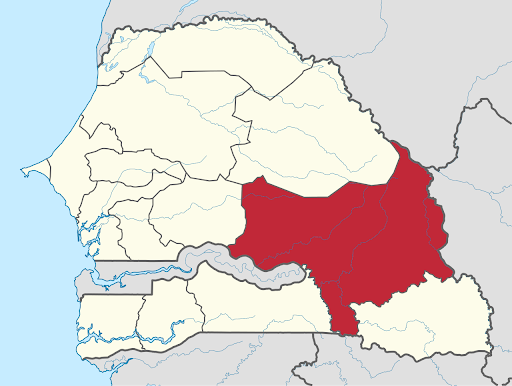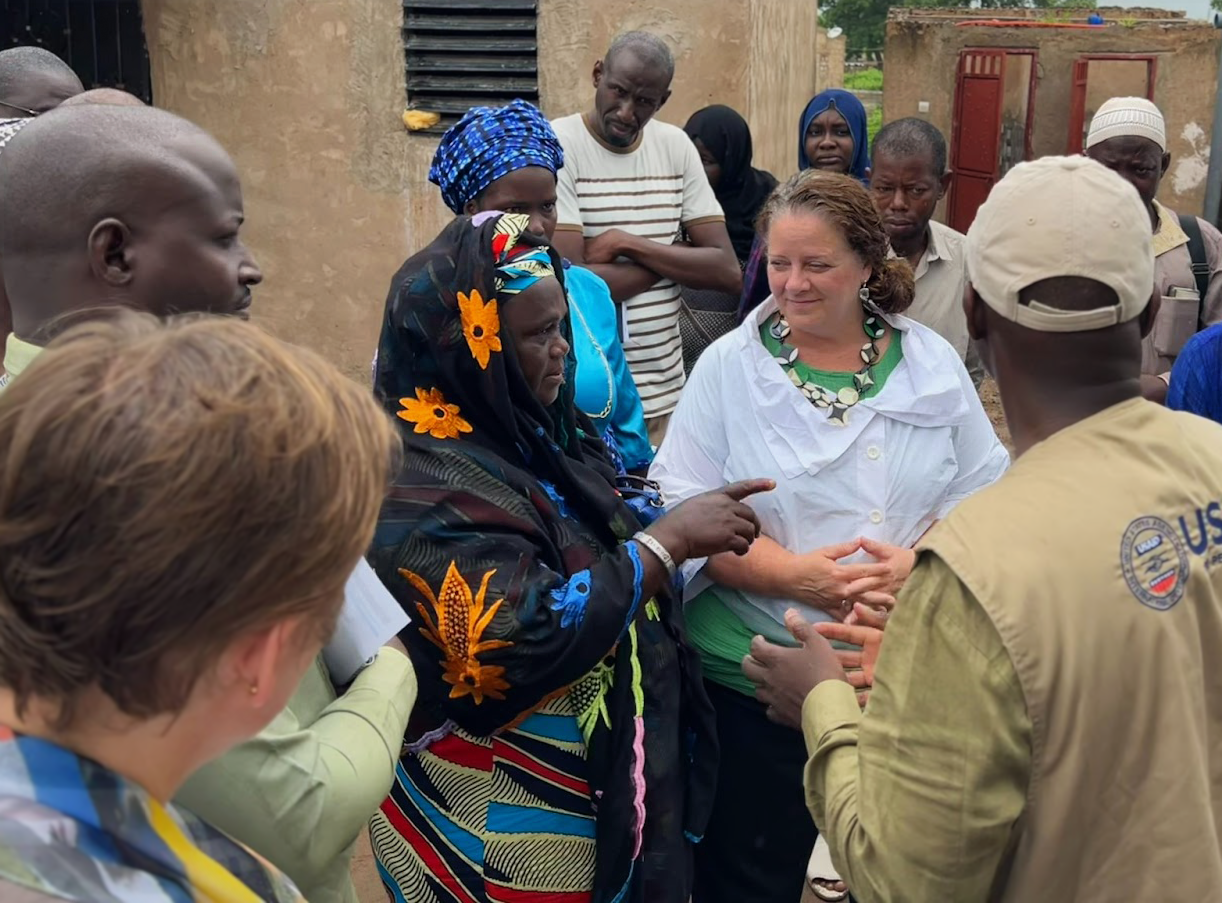Government-to-Government Collaboration Deepens Water, Sanitation, and Hygiene Gains in Senegal: How a unique partnership is bringing sustainable water and sanitation improvements to underserved rural communities
A seven-hour drive southeast of Dakar, the Tambacounda region of Senegal is the country’s largest region geographically, but also one of the most economically depressed and sparsely populated. Tambacounda residents are intimately familiar with the struggle to access water, given that temperatures soar and rainfall ceases during the November-May dry season.

Over the years, many women from Tambacounda’s villages, like Malado Diallo, have grown accustomed to chronic hardships stemming from the lack of piped water access in their homes. Without a reliable in-home water supply, Malado and other women in her village routinely traveled a considerable distance to fetch water, loading up donkeys with containers for the return trip. This daily chore stole time from the village women and girls that could have been otherwise dedicated to attending school, cultivating crops, or pursuing other economic opportunities.

Photo credit: USAID
Malado’s daily plight, and the story of Tambacounda’s water struggles more broadly, are not uncommon across Senegal. According to USAID’s WASH Needs Index, about 15 percent of the population — more than 2.5 million people — still do not have basic access to water, while roughly 43 percent of the population — more than 7 million people — do not have access to basic sanitation.
To tackle these challenges, the Government of Senegal and USAID are engaged in an innovative government-to-government (G2G) partnership that is not only fueling much-needed improvements in the country’s WASH sector, but also putting Senegal in the driver’s seat to implement solutions to its local development challenges.
So how does a G2G partnership work?
A longstanding relationship deepens further
USAID has been investing in Senegal since 1961. The two countries’ rich history of collaboration based on mutual trust and transparency, and the Government of Senegal’s commitment to elevate water and sanitation as strategic development priorities, means this relationship is an ideal fit for this type of G2G partnership.
So what does a G2G agreement actually entail? In this context, while the Government of Senegal has the capacity to implement water and sanitation improvement projects, it often lacks the funding needed to bring these projects to fruition. Rather than have USAID manage and implement projects, this G2G arrangement allows the Senegalese governing agencies at the national and local levels to make water and sanitation improvements themselves.

“We have knowledgeable partners who are competent and know what they are doing. They have a deep understanding of the WASH sector and understand the country’s WASH improvement priorities. As a result, they are very deliberate about the regions where they implement projects; they know where the most urgent needs are.”
- Christine Ndiaye Sene, USAID/Senegal’s G2G WASH partnership manager
Project implementation and oversight are handled exclusively by the Government of Senegal, which engages in everything from procurement of goods and services to water tower construction, borehole drilling, service expansion, and more. These activities allow both national and local government entities to gain valuable experience procuring, overseeing, and executing projects on a larger scale than would be possible without USAID investment. These experiences will prove useful when overseeing sector improvements in the future.
Such a partnership can also strengthen trust in a government's capacity to be responsive to the needs of its people. and its commitment to improving people’s lives. Specifically, USAID wants to ensure that the people of Senegal see that it is their own government and institutions that deserve credit for delivering piped water to their homes.
Amadou Diallo, a technical advisor for the Government of Senegal, says G2G collaborations also bring together the two sides as co-equal partners. “This type of project helps us become an independent country with more self-reliance,” he declares. He is particularly enthusiastic about the potential impact of the project’s ongoing sanitation upgrades, and the partnership’s nurturing of a growing market for sanitation products and waste management services.
“We have learned so much from this G2G, as well as from previous USAID projects, in terms of targeting key populations and market-based approaches. The market-based approaches for sanitation that we learned from USAID are now the basis for all of our future sanitation work.”
- Amadou Diallo, Technical Advisor for the Government of Senegal
Thinking big in Tambacounda and beyond
Back in Tambacounda, a G2G WASH collaboration appeared to be a natural fit for Malado’s village, given that competing development needs and priorities have pushed water and sanitation improvements to the margins. “It’s the poorest region in Senegal,” notes Christine Ndiaye Sene, USAID/Senegal’s G2G WASH partnership manager. As a result, she says, “sometimes sanitation is not a priority. They are so poor that they invest what little money they have in food, and they don’t have water in the household.”
Together, USAID and the Government of Senegal co-created and funded a project to extend water piping to benefit 150,000 people, including Malado’s village, with a focus on households that did not have a water point within 30 meters (100 feet). The partnership is already delivering results: Since 2022, USAID support has enabled the Government of Senegal to reach 32,640people with a piped water supply, including all 340 households in Malado’s village.
The future is looking bright for Senegal’s WASH sector. The country is elevating WASH as a development priority, emphasizing inclusive planning and strengthening coordination among relevant government agencies so that WASH project implementation is more effective and impactful — laying the foundation for a healthier, safer, and more water-secure Senegal.
For Malado, those improvements are already felt and appreciated on a daily basis, with newly gained water access in her home opening new horizons.
“Good pressure water is available each and every day,” says Malado. “And this has made life much easier.”
Related Links
- Senegal | Globalwaters.org
- Activity Page | Government-to-Government: Sustainable Access to Water and Sanitation

About The Author
Russell Sticklor is a communications specialist, environmental journalist, and podcast producer focused on water security, climate change, and sustainable development. He has worked previously with the International Water Management Institute, USAID, and Project Drawdown, among others.


